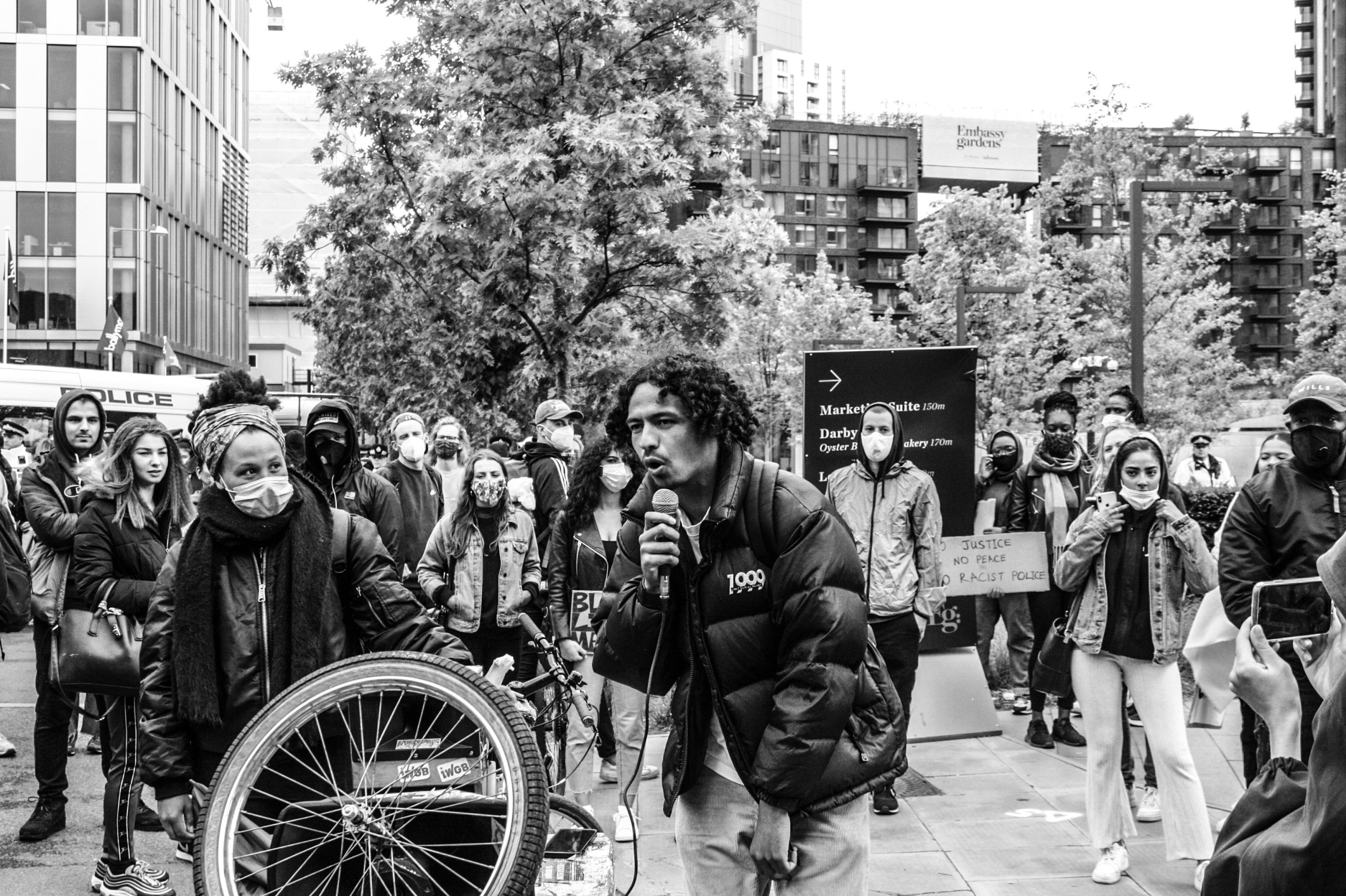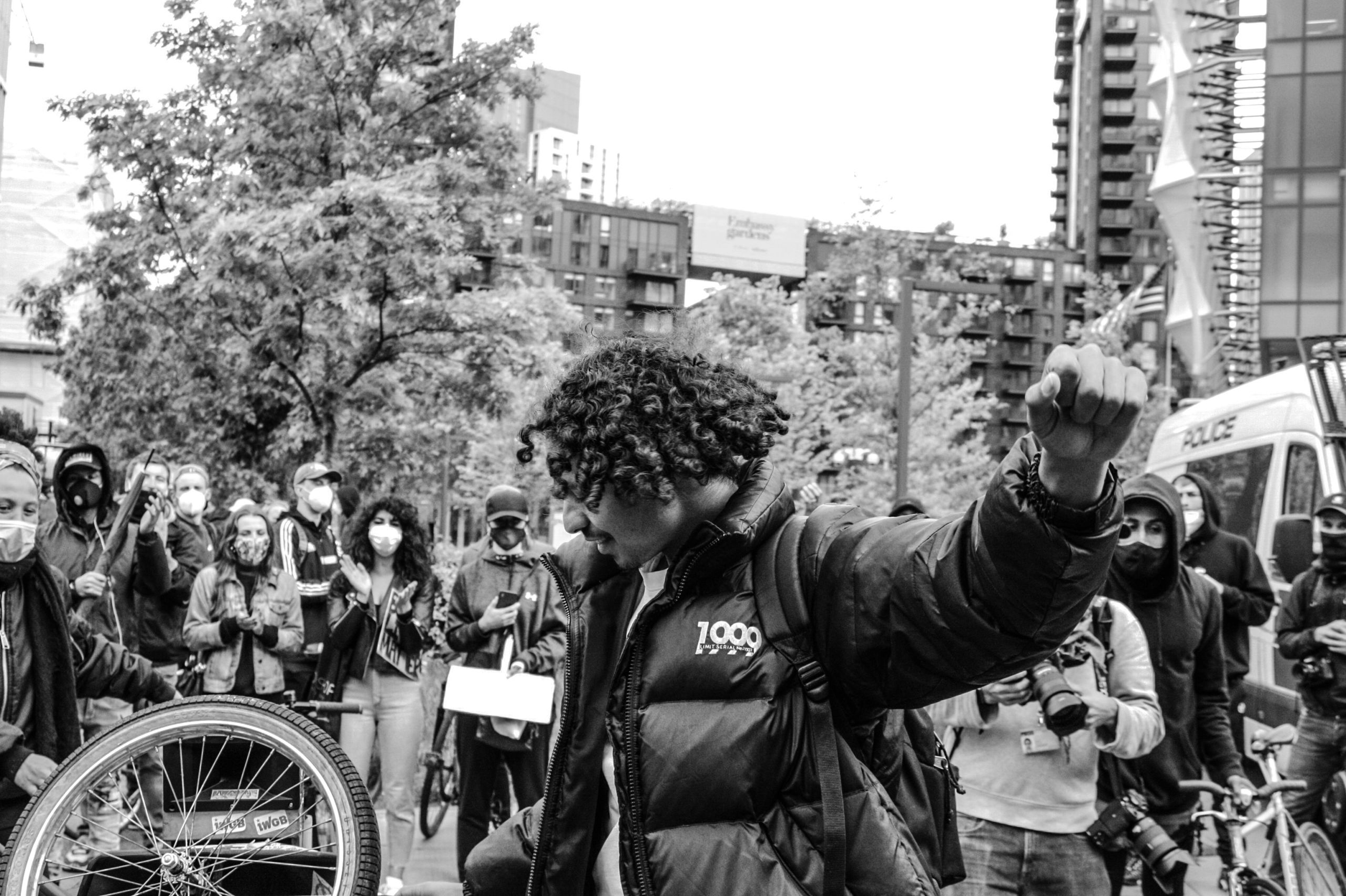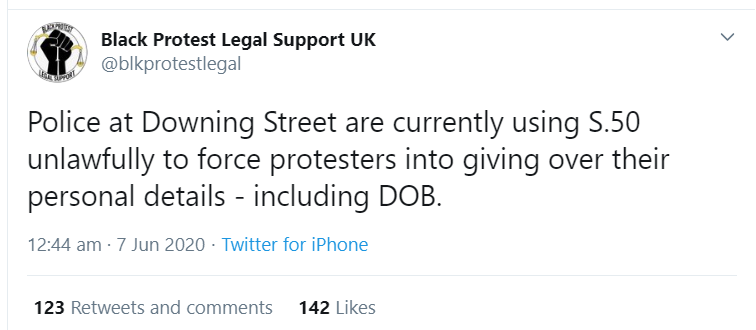Inside the Downing Street Kettle
On a day that was supposed to be all about change, I witnessed how we cannot expect change without changing our thinking.
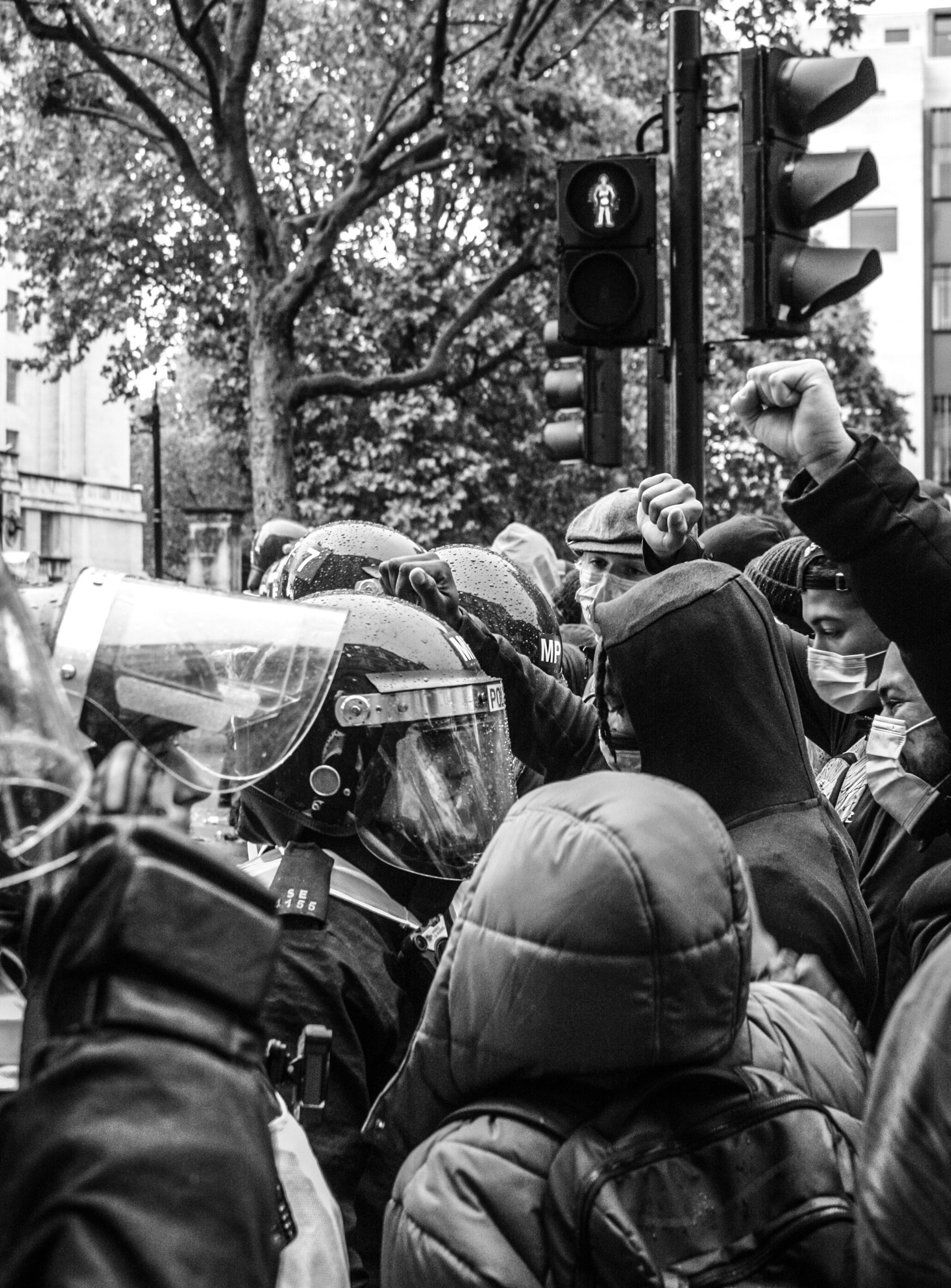
On May 25, 2020, George Floyd was arrested after allegedly passing a counterfeit $20 bill at a grocery store in the Powderhorn Park neighborhood of Minneapolis. He died after Derek Chauvin, a white police officer, pressed his knee to Floyd's neck for nearly eight minutes during the arrest.
On May 25, 2020, the world had had enough.
On June 6, 2020, the protest in central London was the largest of the week. One of the Black Lives Matter organisers had told The Guardian that they had expected about 20,000, but it seemed several times that had turned up.
A day that began with thought provoking conversations and hearing experiences of hardship, was to end inside the Downing Street kettle as police used section 50 of the police reform act unlawfully against us.
I'm a journalist, but I wasn't looking for a story - they poured me one.
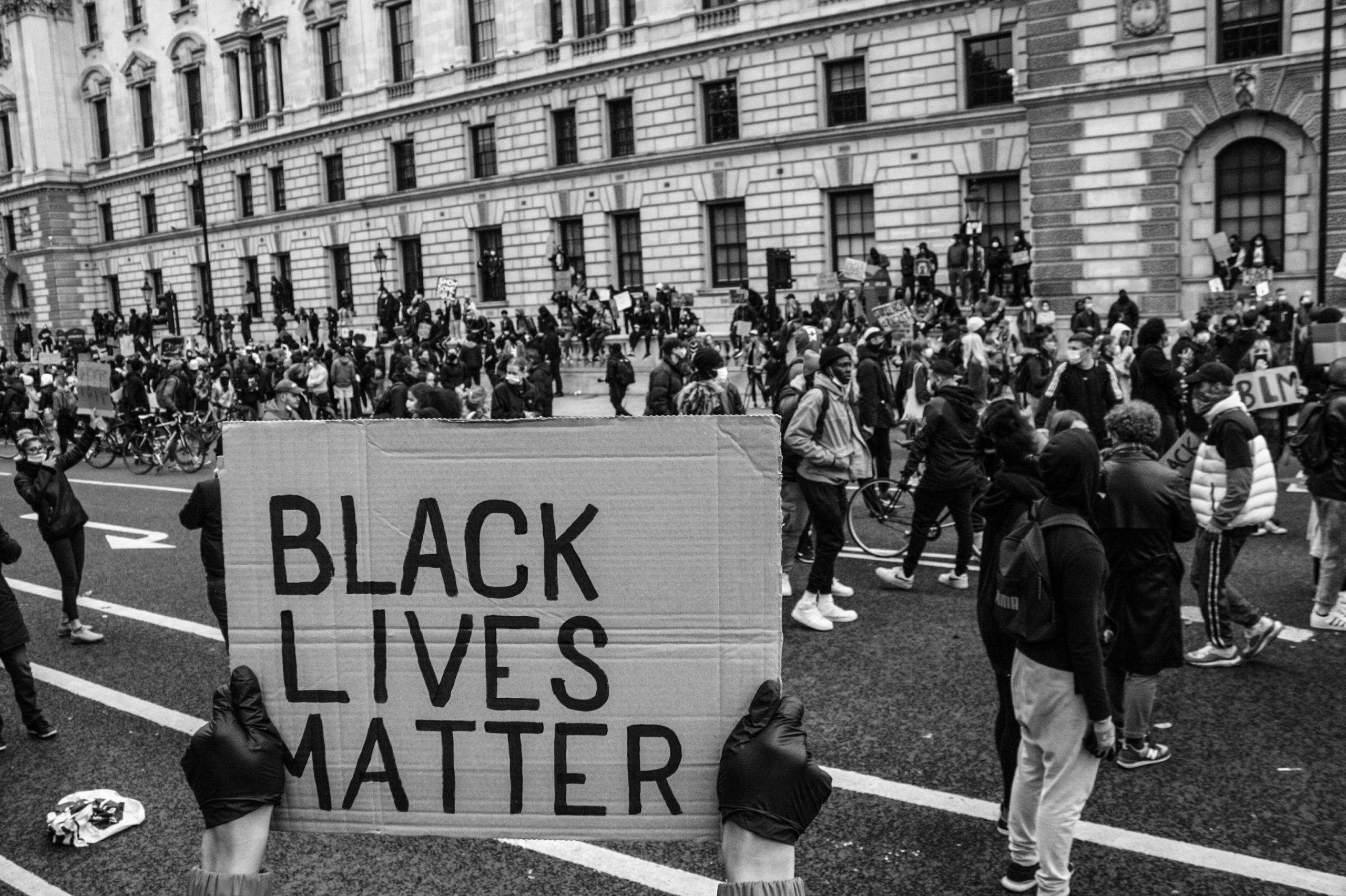
Chants of "I can't breathe" echoed through Whitehall, a revolutionary spirit was in the air, but as the sun lowered over Westminster so did the mood.
An increased police presence started to form in the area around the Cenotaph. A piercing young protester climbed on a wall and yelled out to the crowd, "We are about to get kettled!"
Some took this as a sign to leave, some did not hear her among the rallying cries of the crowd, while others heard her but chose to stay as an act of uprising that is the essence of the Black Lives Matter movement.
At around 8pm a large group of officers charged from Parliament Square, boxing in the 300 or so protesters between them and the police line which had formed adjacent to Downing Street.
Hysteria ensued as protesters tried to make a final escape, frightened screams of predominantly teen protesters reverberated through Whitehall as the police forcefully pushed everyone back into a containment area.
Police used their batons to push people backwards 20-30 metres, it became apparent at this moment that we had been kettled.
Initially the group of protesters were cordoned in a spacious area, but every 15 minutes the police line would move further and further forward. This frustrated the crowd due to everyone's mindfulness of COVID-19.
Antagonistic. Ill-advised. Pointless.
It was clear the police wanted a reaction and some protesters gave it to them in what were reactive moments of exasperation.
The mood of the crowd was one of unity continuing to cry for equality, pulling people away from officers and telling those who were anguished to calm down as it would only make things worse.
I began conversing with the officers on the front-line to gain a better understanding of their approach and how long we could expect to be there for. Their response?
"I don't know."
These officers were doing their job and following their orders, but there is no doubt that there was a major lack of communication between the constables, their sergeants and the protesters.
As the night went on we began to work out the ranking system that accorded with the colour of the helmet of the officer.
"Oi red hat! Oi yellow hat! Come talk to us. What's going on?" was a common call from the crowd.
Some came over and calmly talked us through the process of the scene, whilst others were agitated and blunt to the protesters. Symbolic of the fragmented institution.
As the night drew on and no idea of when we'd be getting home the hunger, lack of water and lack of toilet began to play on everyone's mind.
I asked an constable where I should go to relieve myself. I don't want to wee by the Cenotaph, and I don't want to be arrested I said to the officer. His response?
"I don't know."
People started to become increasingly anxious as it got later and later, tubes would soon stop running, phone batteries were about to run out as people tried to work out their journey home.
One particular gentleman even tried getting himself arrested as he saw it as a quicker route of getting indoors.
Chants of "Let us go" pulsated through the night. Shortly before 1am whispers started to go round that they are letting people go one by one.
It became apparent that when leaving the officers would circle you with a camera, taking a photograph as they do so, and ask you for your details. They threatened that failure to do so could see you taken to the police station.
This was an unlawful use of section 50 of the police reform act.
There were legal advisors among the crowd that warned people you did not have to do this and what in fact they were doing was unlawful. The police cannot use section 50 as a blanket term and must have evidence on every individual to enforce this power.
Between 1am and 2am people filtered out, unsure and apprehensive about what to do. To many, handing over your details felt like it meant the police had won. I overheard one man resolutely tell the officer his name was Mark Duggan as a final act of protest.
As I neared my exit I was shocked to see a pregnant woman in the queue. We rushed her to the front as it was now approaching six hours of standing in the cold with no food and water.
When I was leaving one officer commented, "I'm presuming you lot won't be coming back tomorrow then." At this point, in my tired state, I just laughed at the ignorant transparency of their agenda and assured him that nothing could stop these people fighting for change.
At 2am I was escorted over Westminster Bridge by two officers who explained to me that I am not allowed to return to Westminster or could face being arrested.
Tens of thousands of protesters, 300 kettled, 14 arrests, 6 hours, countless officers, countless tax money, but only one movement.
I sat down with former dedicated ward officer Matt Harris to discuss the state of the Met.
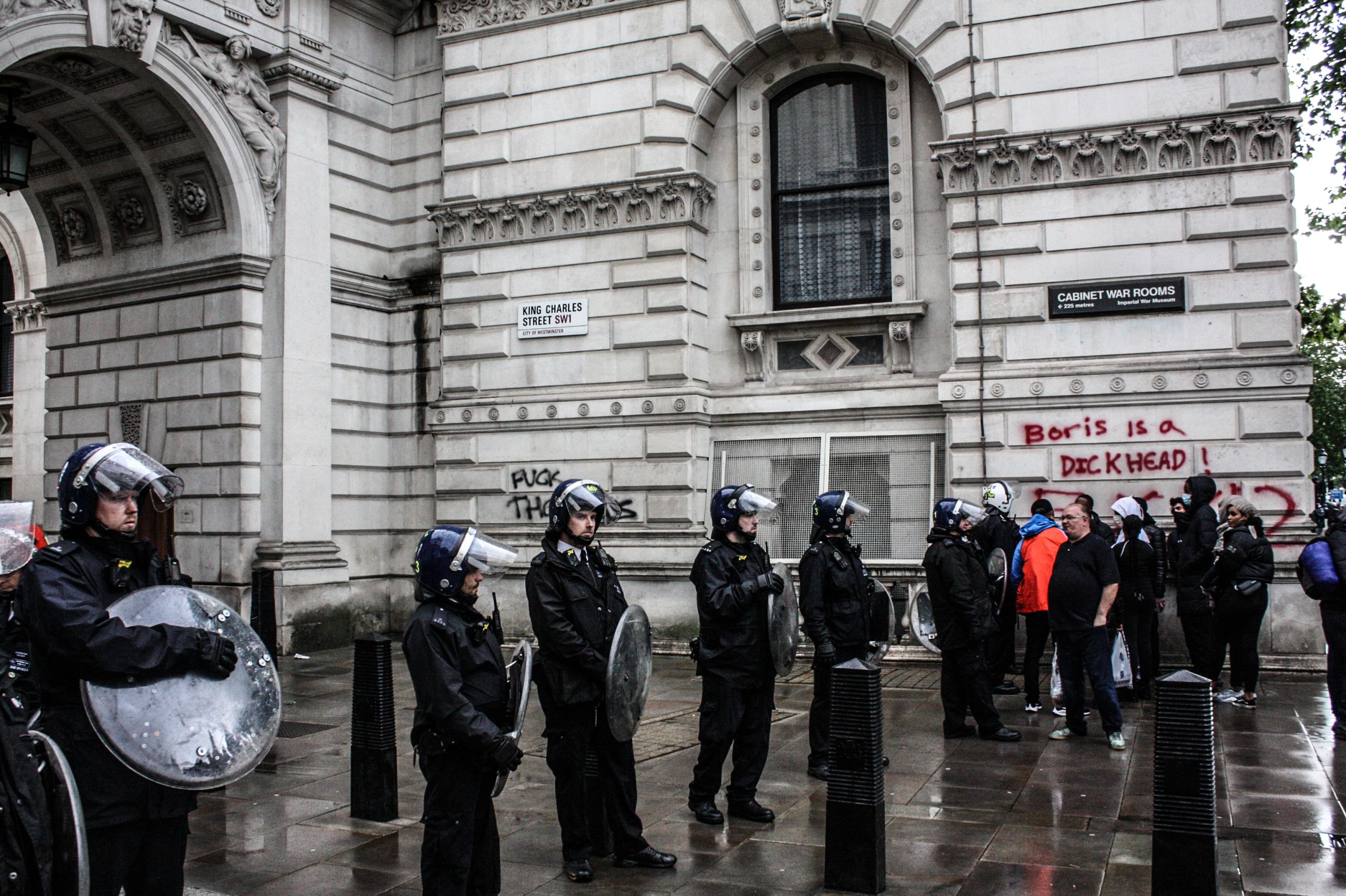
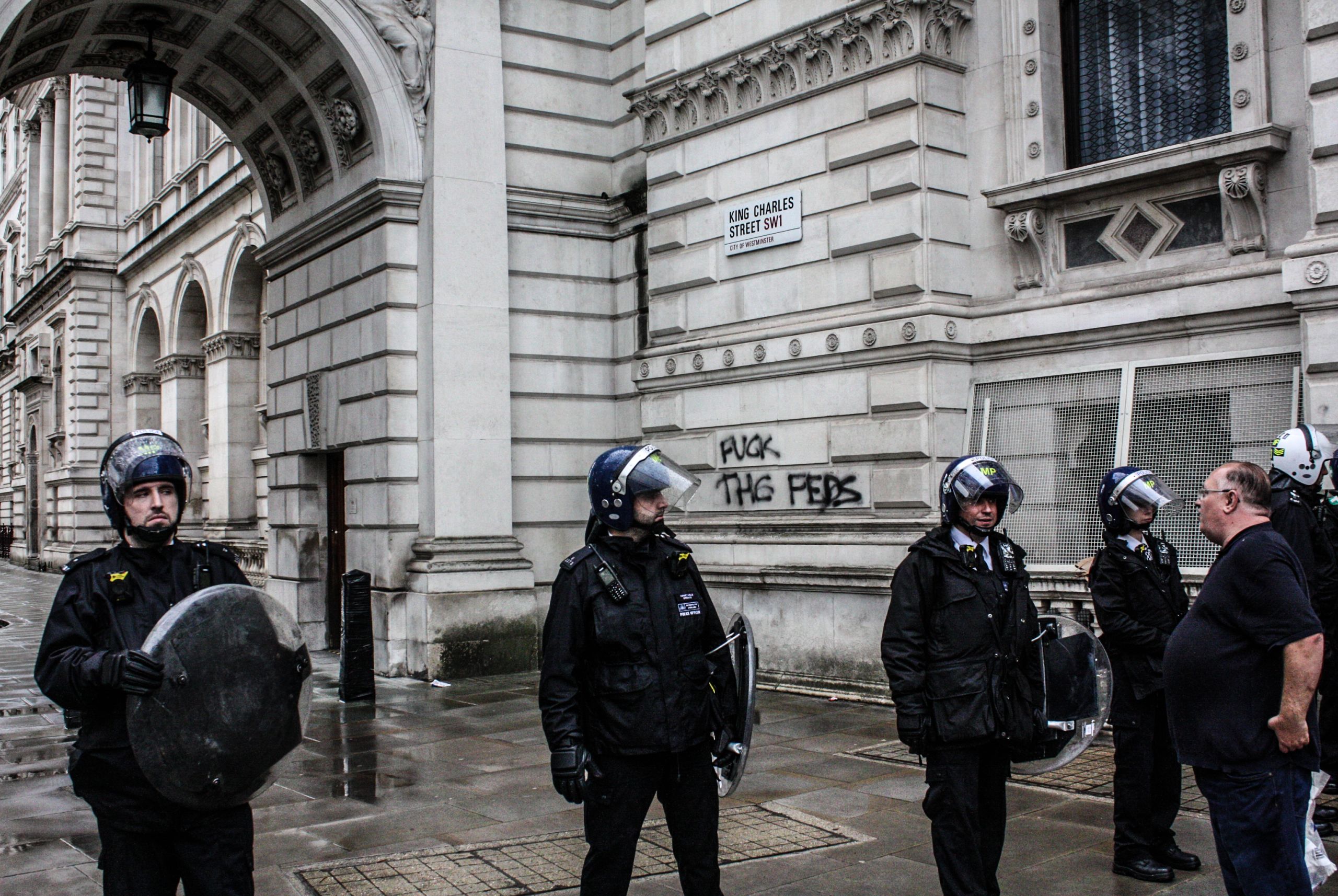
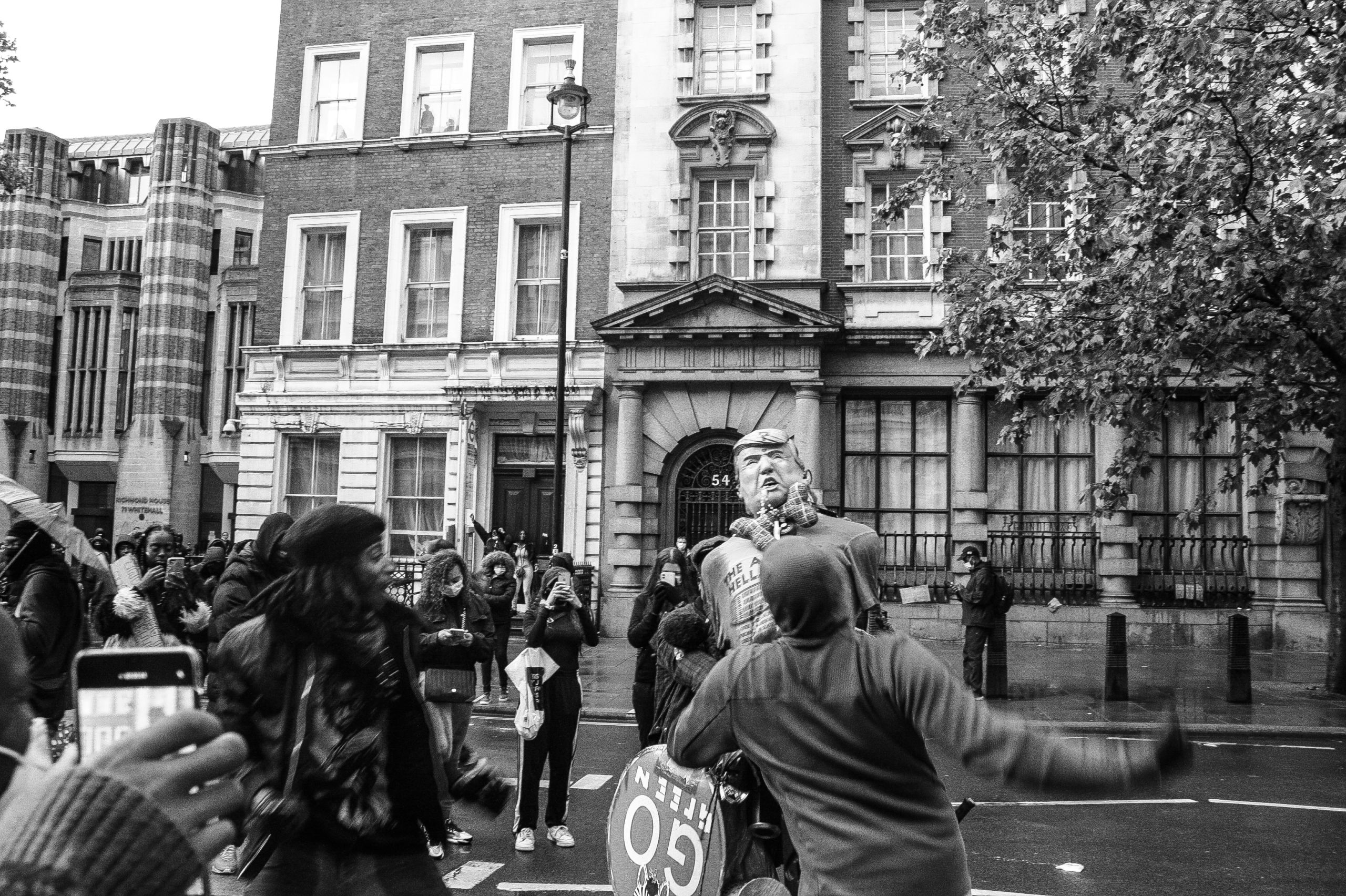
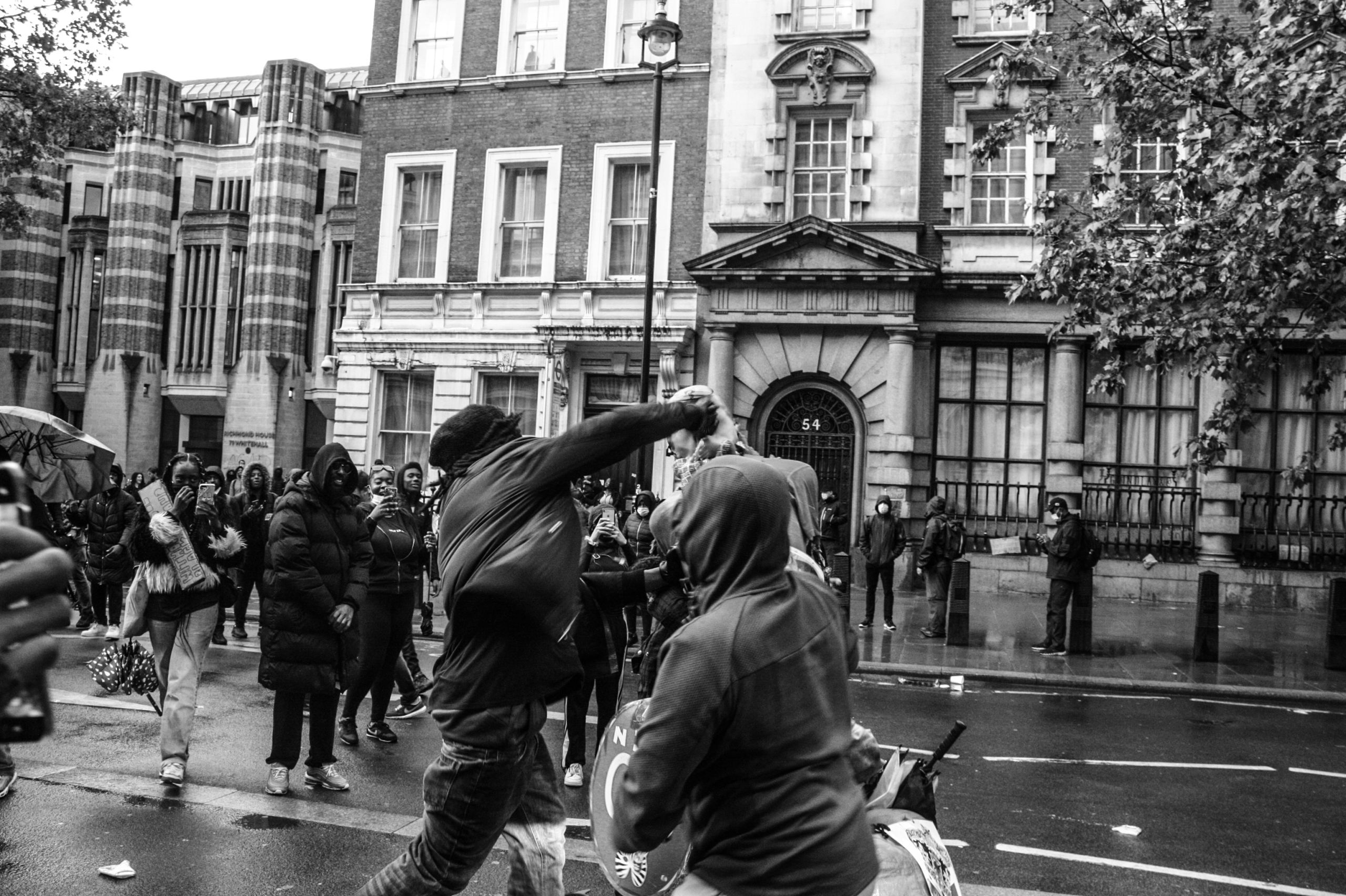
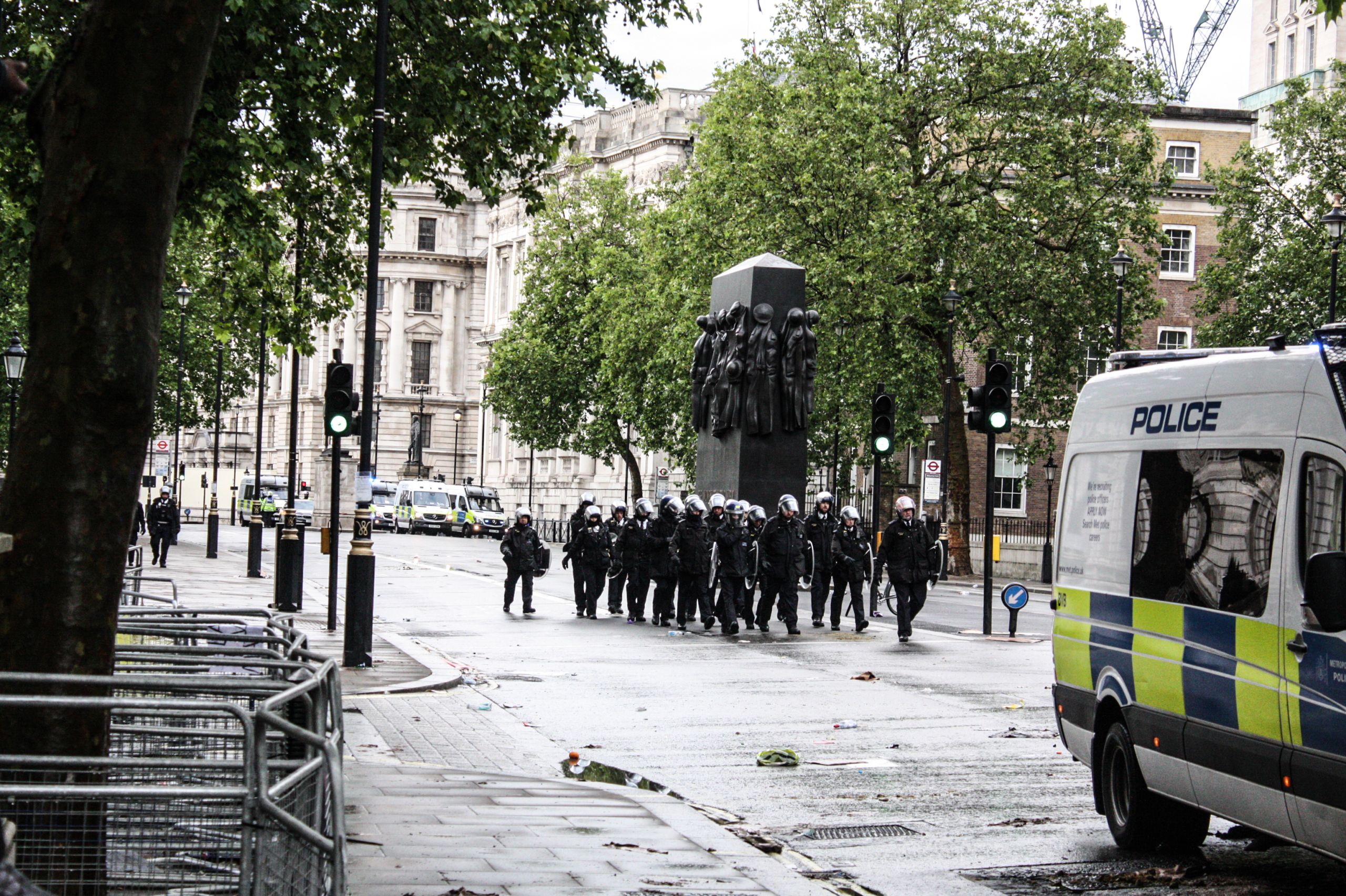

Harry Mac, musician, also at Downing Street.
Harry went to the protests to show his support for the movement and record a music video called 'I CAN'T BREATHE'. The video can be found below.
"Something that stood out for me that day was how some policeman conducted themselves towards me personally, as much as there were many compassionate conversations being had, some members let the force down.
"Whilst shielding both angry police and protesters from each other, purely mediating, I was pinched and punched under the belt by a sad officer trying to provoke me.
"To know that people like that walk among the mostly good natured force makes me angry, and scared as to how they are allowed to slip through the cracks.
"This small incident and the kettling itself has changed my perception of the police, how can they act with such callous disregard for the consequences of their actions?
"To kettle a group of peaceful protesters, to antagonise and provoke to the point where the violent response is almost justified, to observe that behaviour from the people supposed to be protecting me fills me with sorrow to be honest.
"This experience is something I, and the many I shared it with, will carry for the rest of our life. I know it will spur me on to be more proactive in our fight, more vigilant and discerning in everyday life, knowing not all is as it is portrayed by the media."
